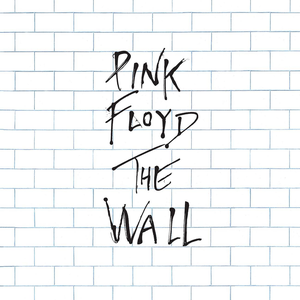Published on Dec 17, 2013
Let's just say it: This is one of the most overrated rock albums of all time.
Yes, it has sold millions of copies, and yes, at least five of the songs get regular classic rock airplay (the station in Toledo plays a song from it, and no other Floyd albums, at least twice a day). But it is not a great album…it's not even a Pink Floyd album, really, but more of a Roger Waters solo album.
Waters wrote or co-wrote all of the songs, sings many of them and helped with production. Drummer Nick Mason and guitarist David Gilmour do their jobs and not much more (save for a few examples we will discuss later), and keyboardist Rick Wright is barely noticeable; at this point, he was a paid employee, and the only one to make money on the ensuing tour, which is pretty funny. Honestly, it sounds like the music could be played by any band of the era. At almost no time does it rise to the level for which Floyd is known.
What makes this like other Floyd albums is a concept, sound effects and themes of alienation, drug use, madness and exploration, themes that have been present since Syd Barrett founded the band. But the execution is so self-pitying and obnoxious that it's irritating. The story concerns a rock star (what a stretch) who lost his father, had an overbearing mother and hated school, so he turns to drugs, sex and rock (original!) as an outlet for his increasing insanity. He eventually builds a psychological wall that helps him get through concerts, in the process envisoning himself a cult leader (with Nazi overtones) and, in the end, putting himself on trial and tearing down his mental wall to rejoin the world.
If that sounds convulted, it is, and the lyrics are even worse, making references to domestic abuse, racial slurs and a bunch of whining. One wants to just smack Pink and tell him to be a man, straighten up and get his shit together, but this would cut the album short by an hour or so.
As for the music, well, it's a long way from Wish You Were Here, with almost nothing that is recognizable from the band's sound. The songs are all short, fairly basic, free of atmospherics and keyboards and jams; the biggest hit, "Another Brick In The Wall Pt. 2," even sees Mason tapping out a simplistic disco beat to back up the inane lyrics (although every schoolkid immediately responds to "No education!" – so how could the song not have been a hit?). His overly simple playing to "Comfortably Numb" is even worse; it could have been a drum machine and nobody would know.
Gilmour gets a few nice moments, particularly in the lovely acoustic "Is There Anybody Out There," the solo to "Comfortably Numb," the fun "Young Lust," the propulsive "Run Like Hell" (the best song here) and the tricky chords of "Hey You." But even his fluid, languid style of playing is truncated here so as to serve Waters' songs, many of which feel like filler to advance the story. Underwritten, unmemorable fluff like "The Thin Ice," "Goodbye Cruel World," "Bring The Boys Back Home," "The Show Must Go On," the dull "Mother," the overslow, depressing "Don't Leave Me Now," "One Of My Turns" and the other version of "In the Flesh," with the offensive second half, just clog up space and are, frankly, duds coming from the man who wrote "Shine On You Crazy Diamond" and Dark Side Of The Moon.
That said, there are moments where the band wrings drama out of the story and everything works, mostly on the aforementioned Gilmour songs but also on the moving "Goodbye Blue Sky," the creeping sense of foreboding in "Another Brick In The Wall pt. 1," the crowd chants that swell up in the closing moments of "Waiting For The Worms," and the ending "The Trial," which is the only time Pink is honest with himself and claims victory over his internal demons. On record and in concert, the closing chorus of "Tear down the wall!" will send chills down your spine, especially when you hear the bricks fall and the strains of "Outside The Wall" waft in from the ether.
There is a great single album here, but you have to wade through a bunch of crap to find it. It was clear that Waters was fully in control and a deep disdain (bordering on hatred) was developing between him and the other three; after this and one final terrible album, he would split. Waters is very proud of this record, and certainly the millions of sales would suggest the public agrees, but the truth is that this is not a great Floyd album and not a great album in general, merely a good, ambitious one whose flaws cannot be overlooked. “
